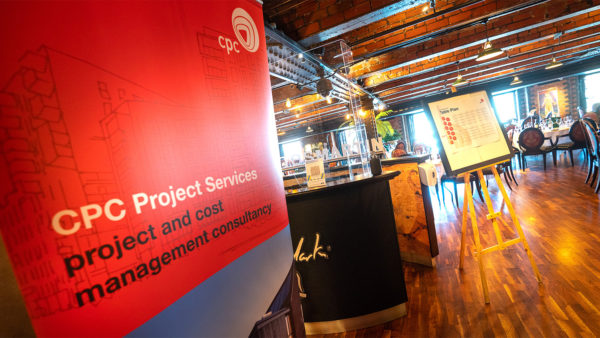
Project meetings becoming uninspiring, unexciting and descending into tedium? It doesn’t need to be that way, says Dave Stitt.
Most of the project kick-off meetings I’ve had the misfortune to attend have been tedious affairs designed to strangle happiness.
As project manager I’d bound in, excited that we’d been awarded this brilliant project and bursting with eagerness to get started and do the best job ever. But 20 minutes of boring agenda later, all that energy would be draining away as I succumbed to the glum, stiff mood.
It doesn’t have to be like that: those kinds of kick-off meetings aren’t necessary, and they don’t help. Quite the opposite: they instil negativity in what should be the project’s nerve centre, and it will filter out and sully everything.
The five tips below flow from my basic philosophy, which is that the true foundation of great results is relationships. It’s not harder, faster work; it’s not contracts, protocols and procedures; it’s not subject expertise; it’s not pressure and deadlines. All these things have important roles to play, but underpinning them all is the quality of the relationships among the project principals.
If those relationships are good – meaning there’s trust, candid communication, and a commitment to work together for shared success – then the hard systems we obsess over will stand a chance of working. If they are bad, those hard systems will not deliver results.
So, the ideal kick-off meeting has one purpose: to establish good relationships among the project principals. It ought to be a joyous occasion. It’s the first chance to get senior people (who probably aren’t natural collaborators) together to learn how to collaborate. Anything else can be sorted later.
1. Have the right people in the room
I’ve been in kick-off meetings with 30 people. Madness. All these passengers absorb energy, dissolve focus and use up oxygen.
Out! Just the principals, please.
When heads of state meet, especially for the first time, all their minders, advisers and hangers-on are told to shut up and move away so these two human beings have a chance to get to know each other. And that’s what they try to do. They don’t dive into coconut tariffs or selling each other aircraft carriers. It would be rude.
‘Do decent introductions. Get everyone to say some things, like what they were working on before and what they like doing when they’re not working. Invite everyone to ask everyone questions. Get them talking to each other.’
Same for the kick-off meeting: decide who absolutely must be there from the various sides, and it should be no more than eight people.
2. Do the ‘people’ bit
In my unhappy kick-off meetings there would be the tersest of introductions – name-company, name-company, name-company, done – as if the people didn’t matter much, or we all knew each other anyway. They did, and we didn’t. How could we? I would glance around, wondering sadly who these people were that I was going to spend the next three years working with.
Do decent introductions. Get everyone to say some things, like what they were working on before and what they like doing when they’re not working. Invite everyone to ask everyone questions. Get them talking to each other.
It might feel like some sort of embarrassing dating event that is beneath us big, grown-up construction people, but so what? It works. It’s normal, and it builds affinity, empathy, trust and excitement.
Affinity, empathy, trust and excitement are emotions, and that’s how we humans process new things: emotions first, then meaning, then detail, in that order. The kick-off meetings I endured tried to expunge emotion and meaning altogether and allow only detail. Awful.
Aim to spend at least 25% of the meeting just getting to know each other.
3 .Talk about what matters to you
Now bring the conversation around to this project, but not the detail, yet. If someone scuttles back into their old technical comfort zone and starts insisting that the sheet piling along the boundary with the rail station must start by the middle of week five, stop them and politely assure them we’ll get to that later.
We’re still in the emotion and meaning phase. People will be feeling all sorts when they enter the kick-off meeting: excitement, worry, relief, exhaustion. Invite people to express their hopes and concerns, what the project means for their organisation, what success on this project looks like, and what it means for them. Invite everyone to ask questions and contribute.
This establishes the human context of this project and prepares the ground for this new team to gel and collaborate.
4. Talk about behaviours
More embarrassing stuff, I’m afraid. How this team behaves with each other will set the tone for the whole project, so now’s the time to settle on that explicitly.
Some behaviours allow good relationships to flourish, and some don’t, so you want the ones that do.
For instance, saying please and thank you works exceptionally well. Being punctual and sticking to meeting start and finish times respects others’ precious time. When conflict arises, talk it over candidly right away and don’t let it fester. Prefer old-fashioned talking to text and email. Honest and timely communication avoids disputes and dispute breeding grounds.
Take 20 minutes and compile a project team behaviour sheet to tack up on every project office wall. Why not? Effective collaboration doesn’t happen on its own; it needs deliberate, effective behaviour.
‘To set a courageous goal, your team should ask: What, in relation to what we’re doing here, would be the equivalent of us winning an Olympic gold medal?’
5. Set a courageous goal
A mountain of detail awaits, and that’s where the devil is, but hold your nerve, because there is one more task this team of principals must accomplish in the kick-off meeting to establish the relationships that allow great results – set a courageous goal.
The contract has a budget and a deadline, and you might think that’s courageous enough, but it isn’t. Every organisation represented around the table has long-established methods for evading blame for slippage in time and cost. Short-circuit that muscle memory with a fresh goal, negotiated and owned by this team, that makes the headline time and cost figures incidental, a matter of course.
You’ll finish early, for instance. You’ll meet the time and cost, but you’ll set a record for the fewest lost-time incidents.
The concept of a courageous goal comes from the book, Challenging Coaching, by John Blakey and Ian Day. It’s a goal that is unrealistic on the face of it, but not impossible. When young athletes first begin serious training, the notion of winning an Olympic gold medal will seem unrealistic. ‘Don’t get ahead of yourself,’ says the inner voice of mediocrity. But winning a gold medal is exactly what they’re putting in the hard hours for.
To set a courageous goal, your team should ask: What, in relation to what we’re doing here, would be the equivalent of us winning an Olympic gold medal?
Courageous goals have immediate consequences: people get excited; they start thinking differently as their eyes open to new possibilities; they reach out to others for help, and these others in turn catch the excitement and start thinking differently. Courageous goals activate teams in ways boring, incremental goals do not. They also cement the team’s relationships by making shared success vivid and by exposing habitual behaviours that work against it.
Now you can turn to the detail by agreeing what needs to be agreed outside this meeting – communication protocols, reporting of progress, dispute resolution, and all the rest – because good relationships neutralise the devil lurking in detail.
Comments
Comments are closed.











Excellent article, from managing the oxygen suckers to observing basic courtesies, from looking beyond detail to agreeing the bigger picture. Can be tricky taking this approach in the face of the ‘why are we doing this pink fluffy stuff’ challenger, but sometimes can reveal hidden skills in the team members.
A very relevant article. Loved the statement “every organisation represented around the table has long established methods for evading blame for slippage in time and cost”. So true. Far too much time is spent on emails copied to all and sundry looking to cover your back.
Sat through so many of these meetings with the name/company introductions, never to see half the people again.